Are you interested in learning what to compost this year for the best garden possible?
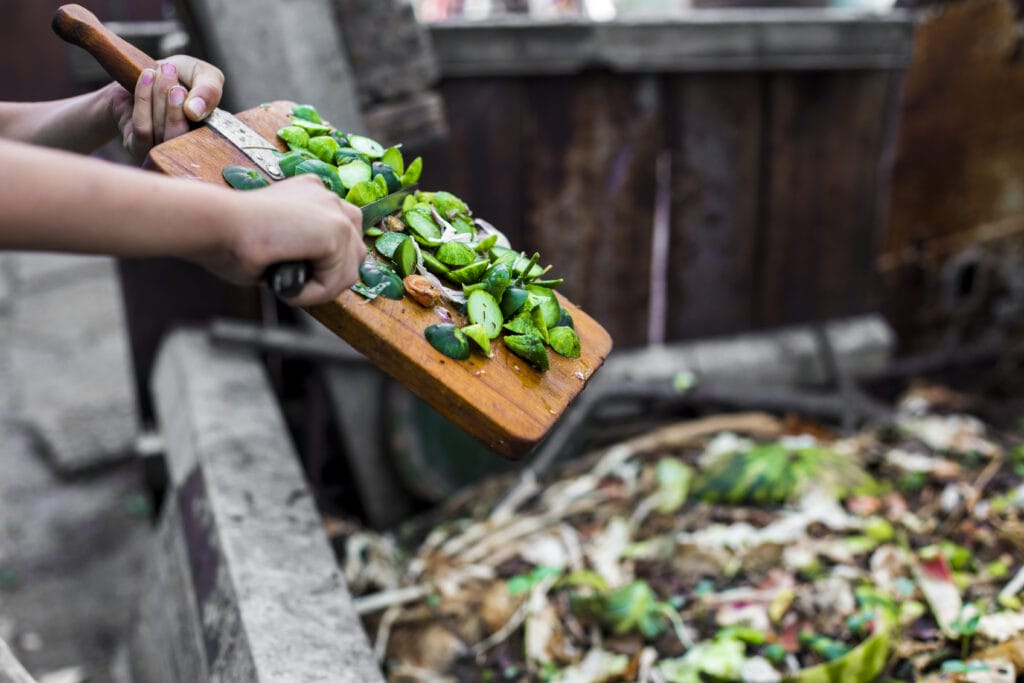
If you are like me you looked online & either came up empty-handed or found 100 ingredients that left you overwhelmed and unsure of your next steps.
Because of this, I have created What to Compost for a Better Garden: Ultimate Composting Guide!
This guide will provide you with the best foods to compost & what not to compost. And best of all is that I will give simple tips for making composting easier and more fun!
Know THIS Before Composting!
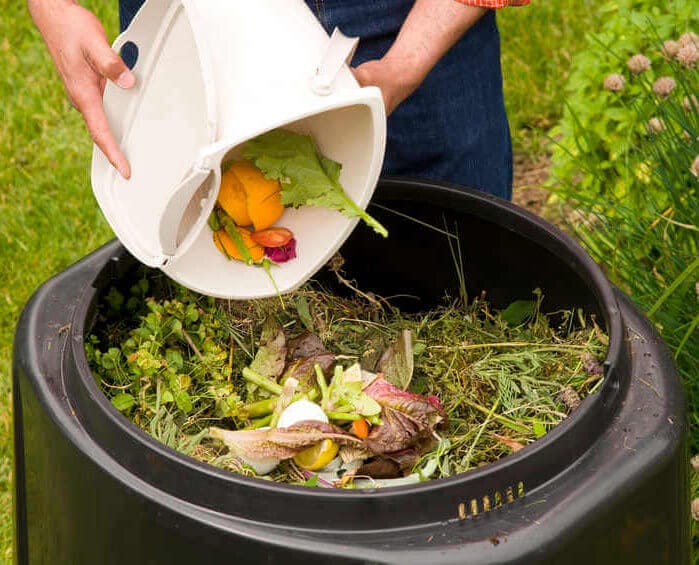
Before we begin, it is important to take a minute to define what a macronutrient and micronutrient are and why it is important to this article and composting.
Very simply, Macronutrients are nutrients that every single plant in your garden needs to have to live….NO EXCEPTION.
While knowing what each macronutrient does is not critical to composting, it is important to know what the 6 nutrients are. They are phosphorus, potassium, calcium, magnesium, sulfur, and nitrogen.
While Macronutrients are key to a plant’s survival, Micronutrients are needed in very small quantities and are important in helping your plants become healthier and produce a better yield.
Knowing micronutrients is less important than macronutrients, but it is still important to understand the importance of them to your compost and garden. They include Boron, Manganese, Zinc, Copper, and Iron.
And while there are hundreds of foods you can compost, I want to provide you with the 9 BEST organic waste materials:
What to Compost (9 Food Waste)
#1. Banana Peels (macronutrient)
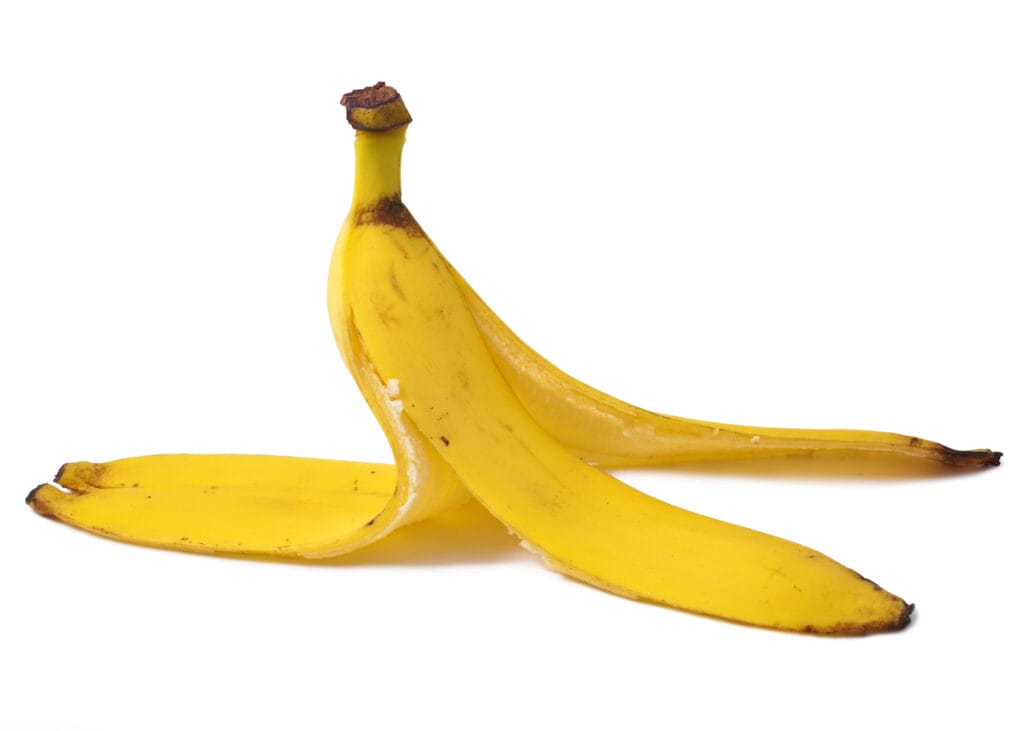
Remember, the goal of this article is to find food that will be most effective in adding nutrients. One of the easiest and most nutritional foods to compost is Banana Peels.
Banana Peels will provide your pile with the valuable nutrient, phosphorus.
This will allow your plants to produce the strongest root growth possible and better flowering, which will ultimately give you a better crop yield.
In addition, phosphorus has been known to give plants the ability to better fight different stressors (heat, disease, cold, etc.).
#2. Coffee Grounds (macronutrient)
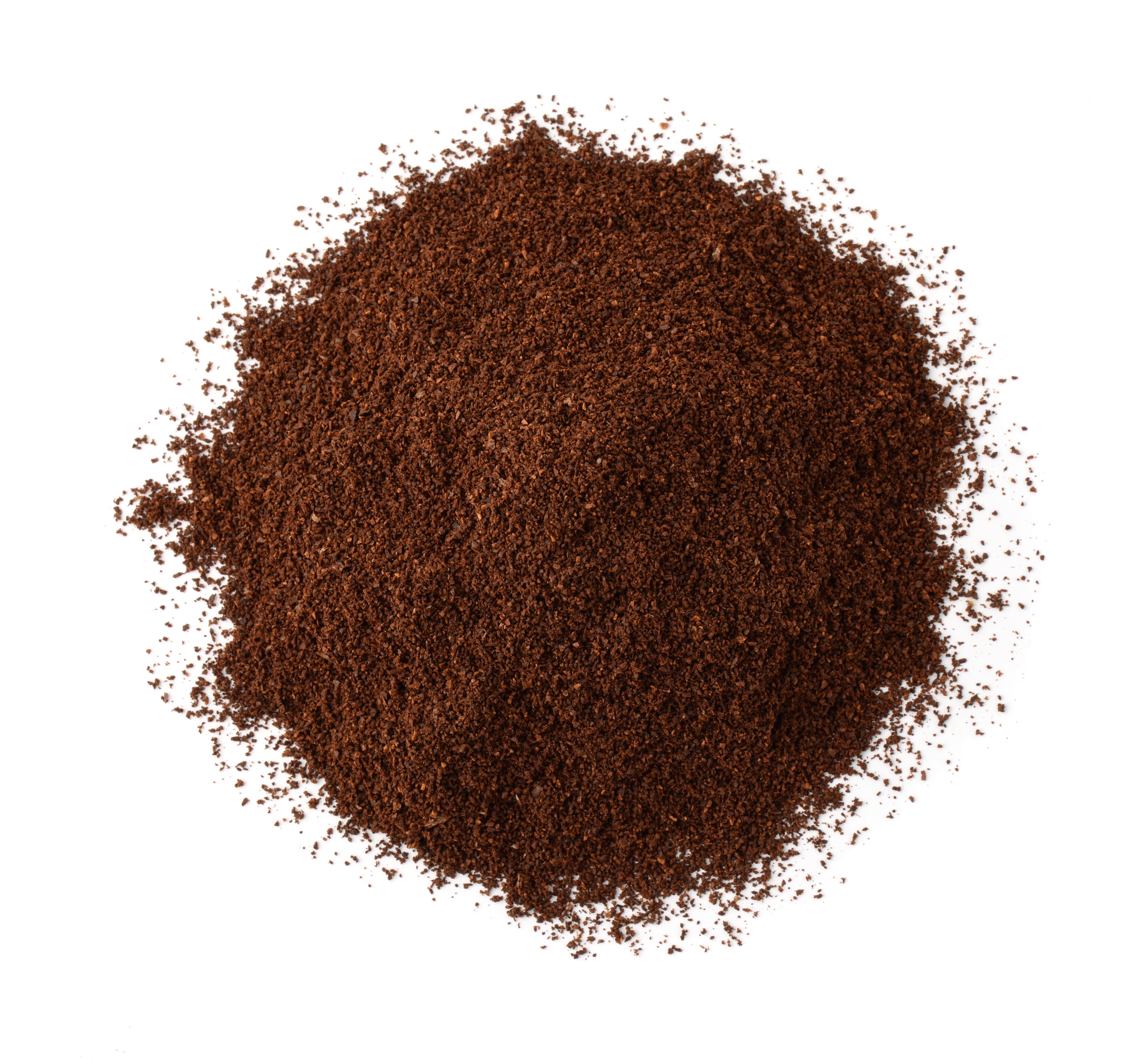
Have you ever driven by a Starbucks and wonder what they do with all those coffee grounds? I haven’t either. The good news for you though is that coffee grounds may be the best food waste to add to your compost.
Coffee grounds will provide your pile with the valuable nutrients magnesium and potassium.
These two are absolutely critical for new plant growth, increases the ability to fight diseases, and in certain situations improves drought resistance.
If you have perennial plants and a lack of potassium, expect to see very little new growth from year to year.
#3. Egg Shells (macronutrient)
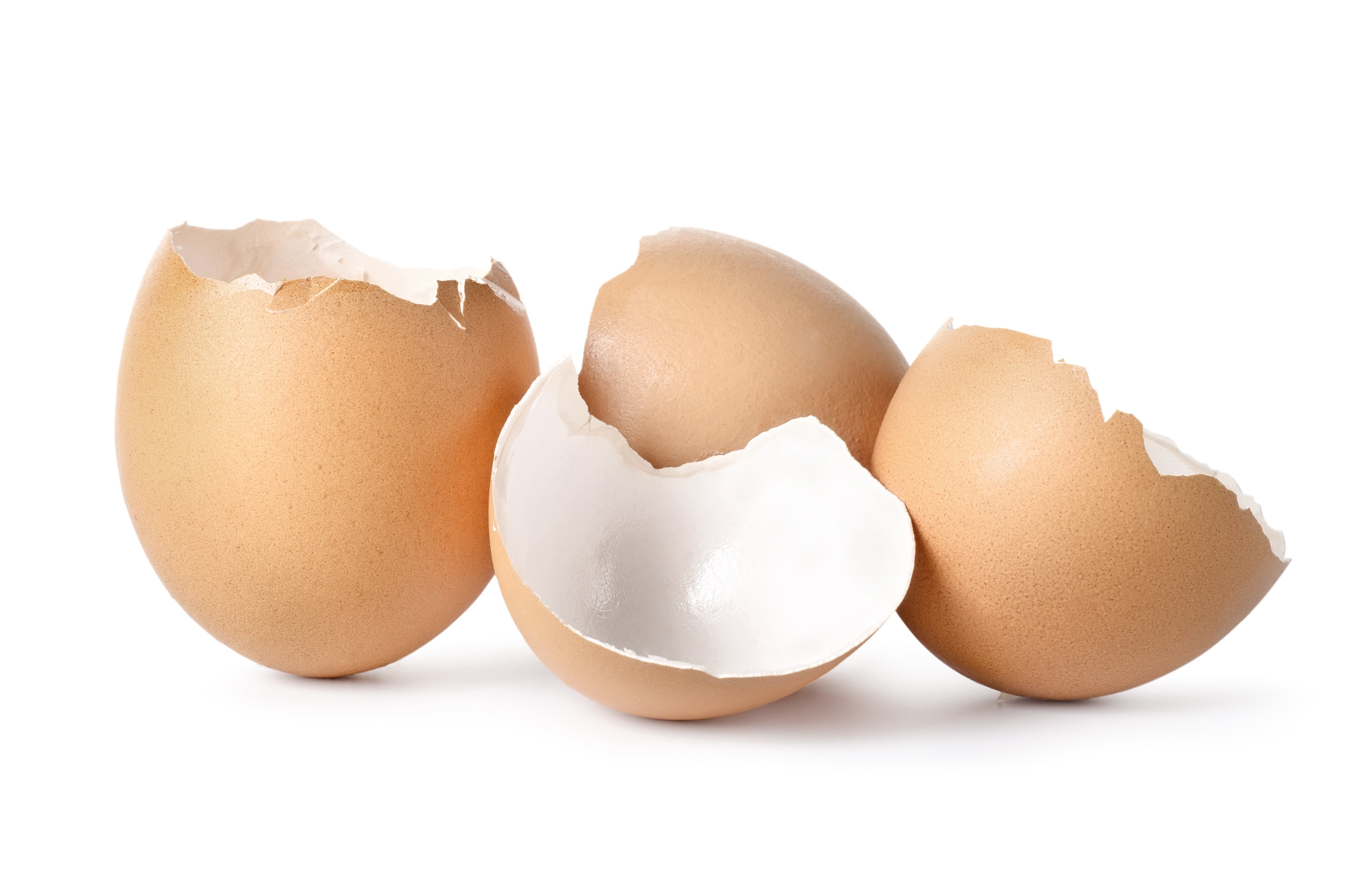
Do you like baked goods? How about a good ole fashion Omelette? If you answered yes to any of these then you
Eggs shells are a great way to provide your compost with calcium. Don’t overthink calcium. It functions in plants just like it does in humans.
Eggs Shells will give your pilethe nutrient plants need to stay strong, support structural growth, and support mature fruits (you don’t want to grow fruit only to have it prematurely fall off).
#4. Brocolli (macronutrient)

Brocolli. It’s great with cheese on it and it’s easy to find in any grocery store across America.
Brocolli is a great way to add sulfur to your pile (and the micronutrient Iron).
Simply stated, this will aid your plants in
There is nothing worse than putting time and effort into a garden, only to have your crop destroyed before you can reap the rewards.
#5. Grass or Leaves (macronutrient)
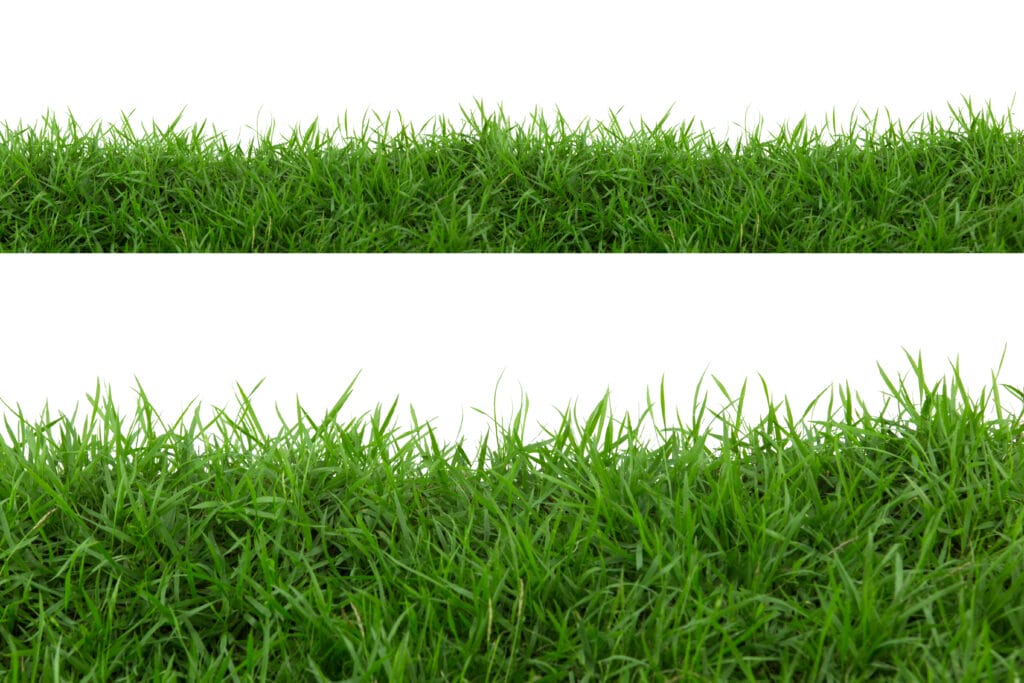
Ok, this isn’t necessarily food, but it will be one of the most important ingredients.
When grass or leaves are green, they will add the most important nutrient to your compost: nitrogen.
Why is nitrogen so important?
Because without it, your plants, garden, and everything else organic would cease to exist.
If your garden isn’t healthy or growing as you want it to then a lack of nitrogen could be the reason.
#6. Apples (micronutrient)

As a reminder, the goal of this article is to compost the most effective food waste that is also the easiest to procure. Nothing is easier to find than the apple. Any apple, any color, and any variety will do.
Apples will provide your pile will the valuable nutrient, boron.
If you notice your plants aren’t producing an abundance of seed or lack fruit development, adding apples to your pile will dramatically increase the crop yield.
#7. Tomatoes (micronutrient)

Is there anything better than a fresh, juicy tomato from your garden? I don’t think so and neither does the plants that absorb nutrients from compost.
Tomatoes are a key source of the nutrient Maganese. This is a key ingredient if you want your plants to grow faster, sooner.
I recommend adding this to your soil as soon as you begin planting. If you wait too long you may have to wait until the next year.
#8. Peanuts (micronutrient)

Have you ever tried peanut butter on a hamburger? If you have, you understand it is one of the greatest discoveries ever. If not, you should try it.
Do you know what else you should try?
Peanuts in your compost.
Peanuts are a great food to add to your pile to help increase zinc. Zinc is a key ingredient
Without
#9. Potatoes (micronutrient)
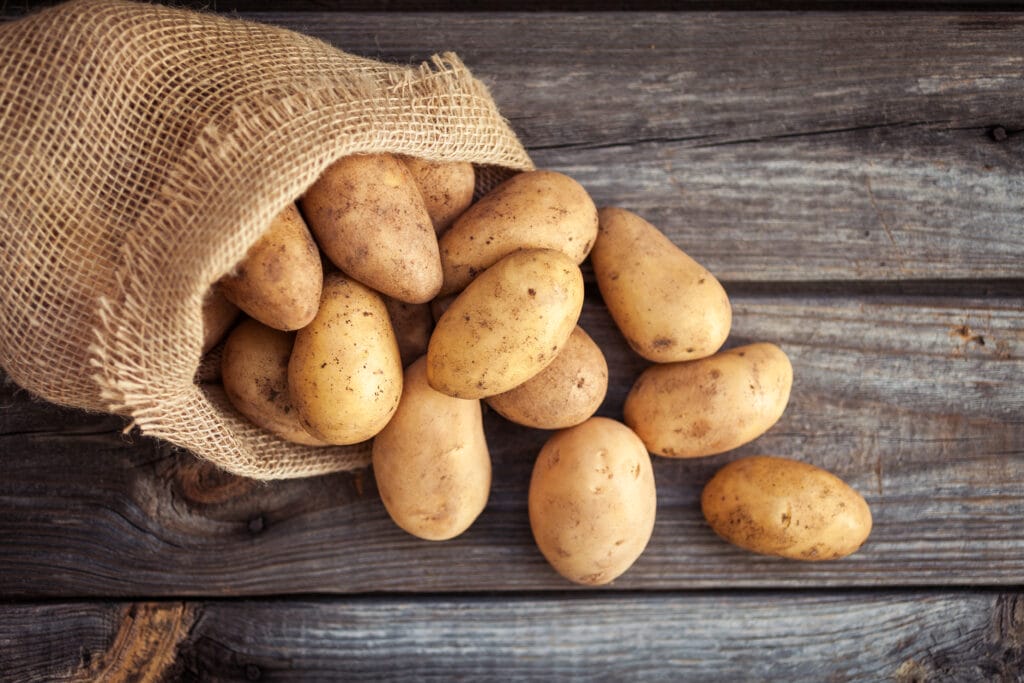
All of my Idaho readers will love this one.
Potatoes provide a tremendous source of nutrient copper. If you own a perennial and are noticing that it struggles to reproduce, you may want to add potatoes into your compost.
Other Great Organic Waste to Compost
If you do not have access to the above 9 BEST foods to compost or want other organic waste materials to compost then look no further.
Below, is a list of brown and green organic waste that you can and should add to your composter:
Composts Quickly
- Grass clippings and brush trimmings
- Manure (organic)
- Bread & Cereal
- Old Wine or Beer
- Dry cat or dog food
- Dryer lint
- Old herbs and spices
- Hay and straw
- Seaweed
- Bread crumbs
- Cooked Rice
- Stale chips (pita or tortilla or potato)
- Pasta sauce
- dried pretzels
- stale protein bars
- candy
- oatmeal
- Jam
- Dead flowers
- Dead houseplants
- Fur from your dog
- Feathers
Composts Slower
- Newspaper
- Tissues and paper towels
- cardboard
- egg cartons
- pine needles
- sawdust
- wood chips
- twigs
- hair
- dry pasta
- nutshells
- toothpicks
- cotton/wool rags
- Wine Corks
- Potpourri
- Burlap Sacks
- Wrapping paper rolls
What Not to Compost
While this article’s goal is to provide you with the best food to recycle, you may also be asking yourself what not to compost.
Again, if you do the research you’ll find plenty of items not to compost and lengthy descriptions of why not, but nothing that is straight and to the point.
Below, are items you should never compost:
- Pet droppings
- Coal ash
- Colored Paper
- Diseased plants
- Chemicals
- Pesticides
- Fertilizer
- Fat/Grease
- Black Walnut Leaves
- Tea/Coffee Bags
- Onion or citrus peels
- Fish/meat scraps
- Treated wood
- Weeds
- Dairy products
- Printed Paper
Why Not Use THESE Waste
Each of the above items has specific reasons for why you shouldn’t compost them, but there are really two that matter.
- These items contain ingredients that are toxic to your plants, attract animals that can cause damage to your property and garden, or attract parasites that can destroy a garden within a couple of days or weeks.
- These items contain ingredients that are toxic to you or have parasites that can cause you long-term harm and disease.
3 Frequently Asked Questions (FAQs)
#1. What are the different types of Composting?
Before we talk about what the best foods are, it is important to have a general idea of what composting is and the three types you can do.
Compost is raw, organic waste from your garden, kitchen, and home.
According to the EPA, most Americans “throw-away” 30% of organic waste that can be composted.
What makes this such an appealing gardening technique is that you can control the amount of organic waste you use and exactly what you put into your pile.
So what are the three types of techniques that you can use?
A) Cold Composting
Cold composting is when you simply collect yard waste and put it into a pile or bin.
Typically, cold composting does not involve organic trash material from your house like vegetables, fruit, eggshells, etc.
Cold composting can take up to a year to occur and is a great and easy way to compost. For most gardeners though a year’s wait is just not reasonable.
- Related: Winter Composting (10 PROVEN Tips)
B) Hot Composting
Hot composting is when you add nitrogen, air, carbon, and water into a pile or pin.
Typically, hot composting involves organic trash material from your house.
What separates hot composting from cold composting though is that you add one large mix to speed up the process. Cold composting involves slowly adding waste throughout the year.
C) Vermicomposting (Worm Composting)
Vermicomposting or worm composting involves adding food scraps into a worm composter. Special worms within the composter break down the waste into nutritious compost.
Regardless of what method you decide to use, composting is an incredible and effective way of adding nutrients back into your garden.
#2. How Do You Compost?
Composting is easy. Just follow the below steps!
Step 1
When starting a pile you will need about 3 feet of waste.
Make sure that the waste you are adding to your pile is composed of a 3 to 1 brown to green ratio. This means that for every foot of green waste you should have 3 feet of brown waste.
Simply add your green and brown waste into a pile or bin and then water it for about 30 seconds.
Water and heat are essential for the decomposition process.
Step 2
Water once a week for 30 seconds and toss your pile with a pitchfork (unless using a tumbling composter) once a week for a few times.
Step 3
Once your pile no longer gives off heat or looks like dirt then add it to your garden.
You want to add 4 to 6 inches to your garden and flower beds as you see fit.
If you want more compost then just repeat these three steps again and again!
If you learn better watching tutorial videos then I recommend:
#3 How Do You Speed Up the Composting Process?
In order for your pile to decompose into valuable nutrients, it should have a temperature of approximately 120 to 160 degrees Fahrenheit.
To help increase the speed of decomposition I recommend chopping and shredding all of your waste.
The smaller the pieces of waste the quicker it will generate heat and become compost.
Not only is shredding and chopping a recommended best practice, but you should always keep your composter in the sun.
Sometimes though this is not enough.
If you find that your composting process is taking too long then I recommend purchasing an activator.
Activators add nitrogen and microorganisms into your pile to speed up the decomposition process.
The activators I recommend are as follows: